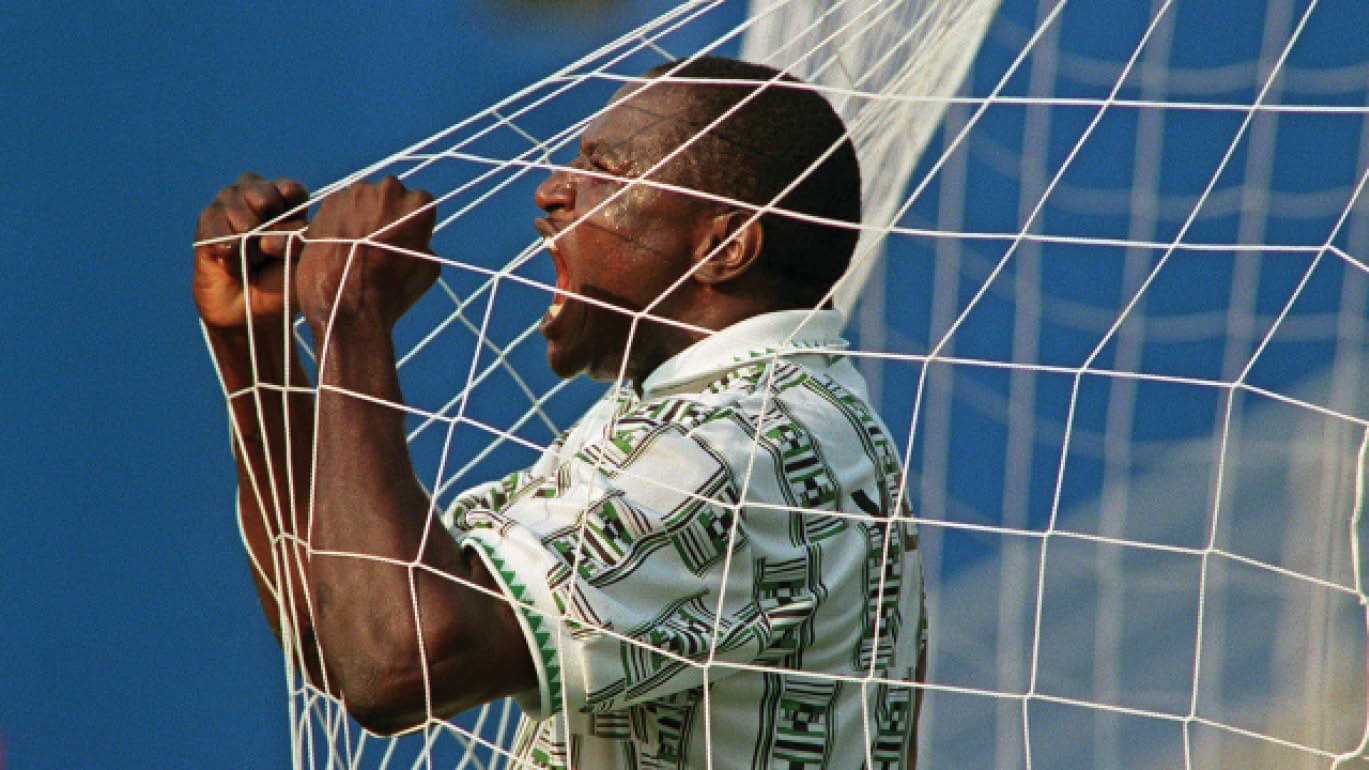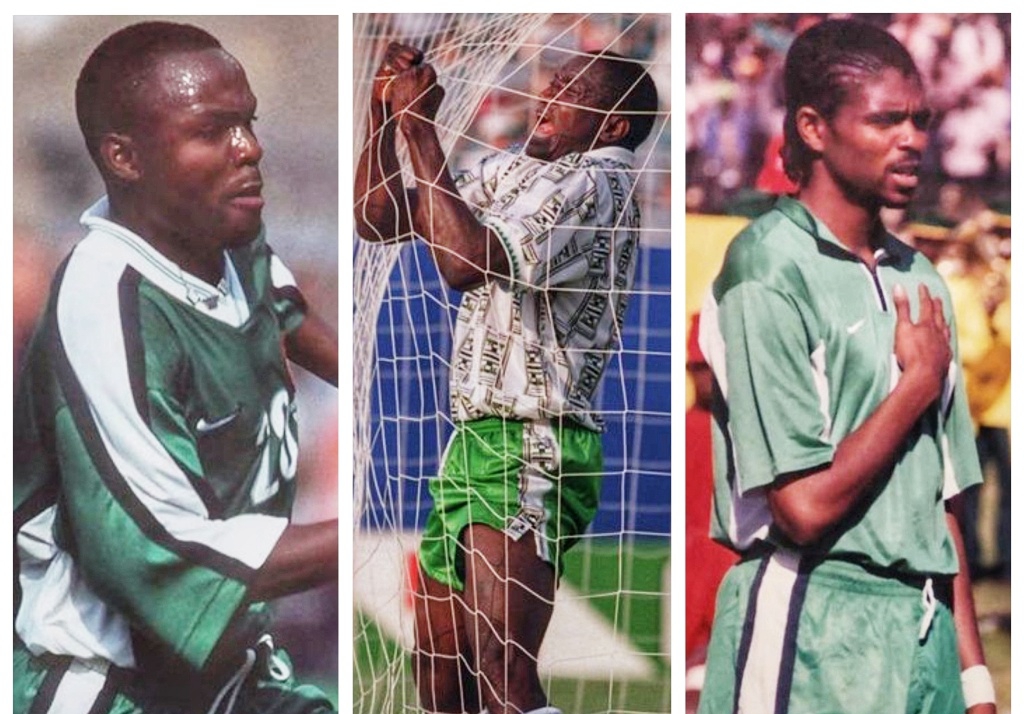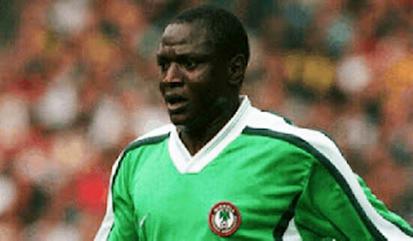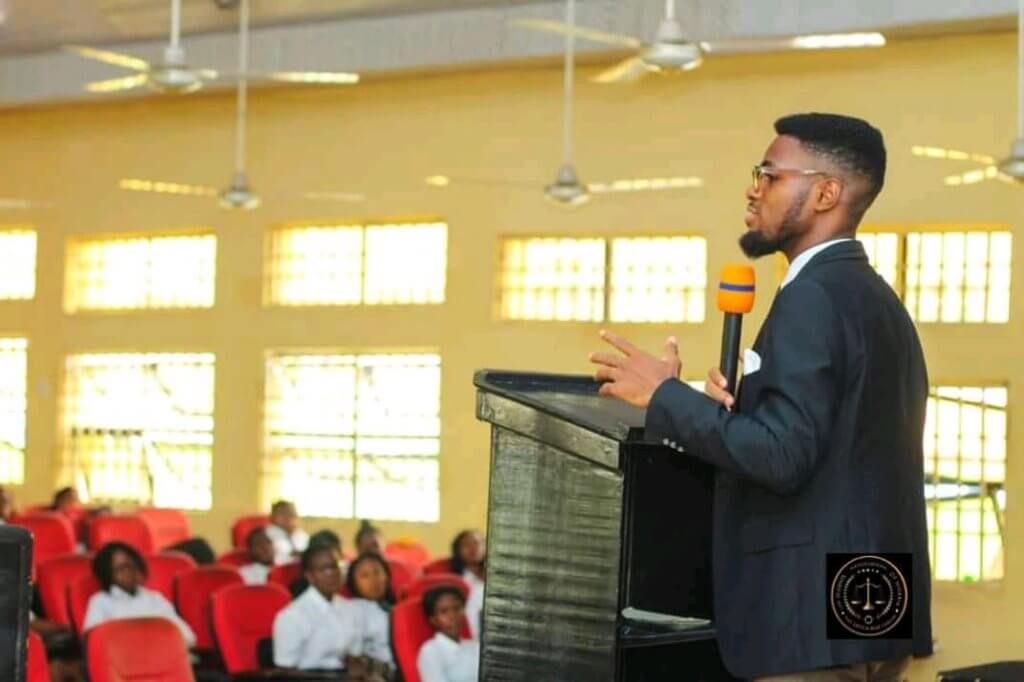30k monthly? — Okwaraji, Yekini and poor welfarism in Nigerian football system

By Victor Akuma
Thirty-thousand naira monthly for the up keep of parents of two legendary sports men who served their nation through tick and thin?
Sad, but don’t get it twisted, that’s the reality.
Recently, The Nigeria Football Federation (NFF) announced it had placed mothers of two Nigerian football legends, Rashidi Yekini and Samuel Okwaraji, on a monthly stipend of N30,000.
The initiative, NFF explained was in further support of the pledge of N10, 000 monthly stipend each for the two families by Minister of Youth and Sports Development, Sunday Dare.
If not anything, the gesture, though properly conceived, is symptomatic of the poor welfarism holding sway in the Nigerian football system.
For two football icons who made enormous contributions to the country’s football history, it is sad such a paltry amount is what would be given to them.
Born on May 19, 1964, Okwaraji, a renowned graduate of International law from the Pontifical Lateran University of Rome, abandoned his profession to serve his country through football.
Sam was there with the Green Eagles at the 1988 African Cup of Nations cup, where he scored one of the fastest goals in the history of the championship against the Indomitable Lions of Cameroon.
He died of complication related to congestive heart failure in the 77th minute of a World Cup qualification match against Angola at the Lagos National Stadium in Surulere, Lagos State on 12 August 1989.
It is quite unfortunate how it took the Ministry of Sports over 30 years to reach the conclusion of paying his mother N10,000 monthly.
Rashidi Yekini on the other hand was there with the Super Eagles in 1994 when the nation recorded its first AFCON gold medal, he was also named best player of the tournament.
Born in 1963, Yekini was also part of the glorious Super Eagles team recorded the glorious moment of winning the Olympics in 1996. He was named African Footballer of the Year in 2003 and scored 37 out of 58 national appearances for the country, a record which only few have been able to beat.
Rashidi died at 48 on 4 May 2012. It is therefore a far cry to have his mother receive N10,000 from the Federal Government after such a relentless and dauntless service.
Recall that Okwaraji and Yekini are not the only players who have been treated with this much contempt by the industry. There lie a number of other players who have played significant roles in Nigeria football but have long be put aside either out of favoritism or carelessness and even corruption.
Among such players are Finidi George, Segun Odegbami of 70s and 80s, Victor Ikpeba and Emmanuel Amuneke.
Jay-Jay Okocha and Kanu Nwankwo should have been in the above category except that they, in their little ways carved a niche for themselves after retiring from professional football.
The corrupt alleged practices holding sway in the Nigerian football system were evidenced in the recent outburst of Chinedu Obasi, one of the silver-winning Flying Eagles squad at the 2005 U-20 World Cup.
Obasi had accused the NFF and other authorities in the sports industry in Nigeria of demanding some cash from him if he wanted to feature in the 2014 world cup competition in Rio, Brazil, lending weight to the never dying dent of corruption in all facets of the Nigerian economy.
“Two days before the list came out, I was asked to pay some money if I wanted to be on the team,” Obasi said.
The sports minister would later come out to dismiss the allegations.
Until we do away with greed, embrace selflessness and fairness, the unending inadequacies seen in the sports industry as well as other sectors of the Nigeria society will continue to linger for years to come.




